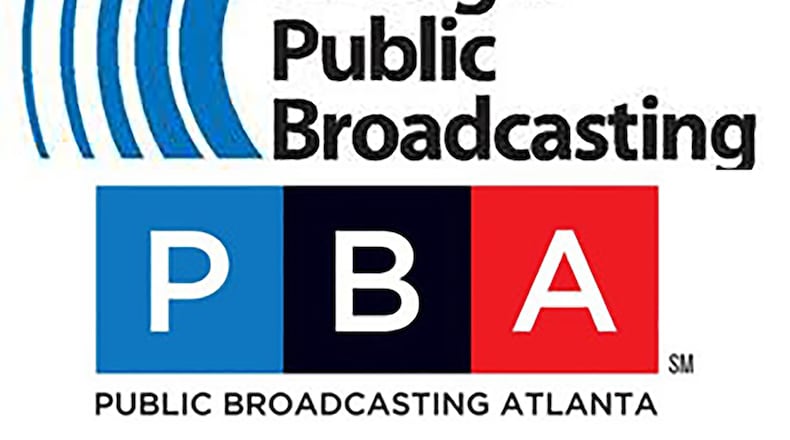This was posted on Friday, March 17, 2017 by Rodney Ho on his AJC Radio & TV Talk blog
If Donald Trump's desire to defund the Corporation for Public Broadcasting comes to fruition, it would not be a death knell for the two Atlanta-based public broadcasting operations.
Georgia Public Broadcasting, which covers the entire state with nine television stations and 18 radio stations, would lose about 10 percent of its revenues. Public Broadcasting Atlanta, which focuses on metro Atlanta with 90.1/WABE and PBA 30, would also have to trim down 10 percent.
Combined, CPB provides the two operations almost $5 million to support their programming dues, or 1.1 percent of CPB's annual $445 million budget. CPB was created in 1967 to provide broad access to non-commercial content and telecommunications services nationwide. It now helps fund about 1,500 stations.
As PBA Chief Executive Officer Wonya Lucas noted, stations in big cities like hers can bear the brunt better than rural ones. "All stations are not created equal," Lucas said. "Those in large urban areas will be fine. The rural stations will lose a much greater percentage of their budgets and could shut down." According to a recent New York Times story, some stations take in as much as 35 percent of their funding from CPB.
PBS ("Masterpiece," "Antiques Roadshow") and NPR ("Morning Edition," "Fresh Air") operate like a co-op, where member stations share in the dues. GPB chief development officer Bert Huffman said if many smaller stations fold, that would place a greater burden on operations like his. "It would be like a domino effect," he said.
GPB, with an annual budget of $34.5 million, is one of the largest public broadcasting operations nationwide. A majority of GPB's funding comes from state and federal funding. That's how it's able to sustain operations in less populated parts of Georgia where underwriting and individual donations are relatively scarce.
For the fiscal year ending June 30, 2016, GPB received $15 million from the state through the Board of Regents of the University System of Georgia. That's about 44.8 percent of all its revenue sources. The federal CPB gave GPB $3.4 million, or 10.2 percent of its revenues, a contribution that has been fairly consistent in recent years.
Huffman said he expects state support to remain steady. He noted that CPB monies are meant to cover dues for PBS and NPR programming for TV and radio, which comes out to about $4.5 million. GPB covers the $1.1 million difference between what CPB gives them and what GPB shells out.
Credit: Rodney Ho
Credit: Rodney Ho
The rest of its revenues come from a mix of individual and corporate donors and rent from use of its studio facilities for shows such as syndicated "Paternity Court with Lauren Lake." It now has 62,000 donor members, up from 40,000 three years ago. During its last fiscal year, GPB spent nearly $3 million more than it took in, partly due to a drop in capital grants and facility rentals, according to a 2016 audit. Huffman said fiscal year 2017 is looking better across the board, with more money from individual donors and underwriters.
PBA saw revenues rise 13 percent year over year for the fiscal year ending June 30, 2016 to $14.7 million. CPB provided $1.4 million of that funding. PBA, which had a deficit of $380,000 for FY 2015, swung to a surplus of $312,000 in FY 2016 under the leadership of Lucas, who took over in 2015.
The station is set to spend $1.85 million in programming this current fiscal year, according to Hilary Silverboard, senior vice president for marketing and business strategy.
Credit: GPB
Credit: GPB
The Atlanta Public Schools owns PBA but does not contribute a dime to the operation. About 87 percent of PBA's revenue stream comes from individuals and underwriting. It has about 41,000 individual donor members. Lucas said, like GPB, revenues are up for both individual donors and sponsors.
Charity Navigator, which gives a star rating to non-profits, gave PBA three stars out of four and a score of 83.23 out of 100 based on its FY 2015 990 form.
90.1/WABE-FM has had solid ratings over the past year, averaging a 3.1 rating and 400,000-plus weekly listeners, according to Nielsen Audio. 88.5/WRAS-FM, which GPB has controlled on the FM dial during the day since 2014, has seen ratings gradually grow, hitting a station-best 1 rating this past January and more than 130,000 weekly listeners.
About the Author
Keep Reading
The Latest
Featured






